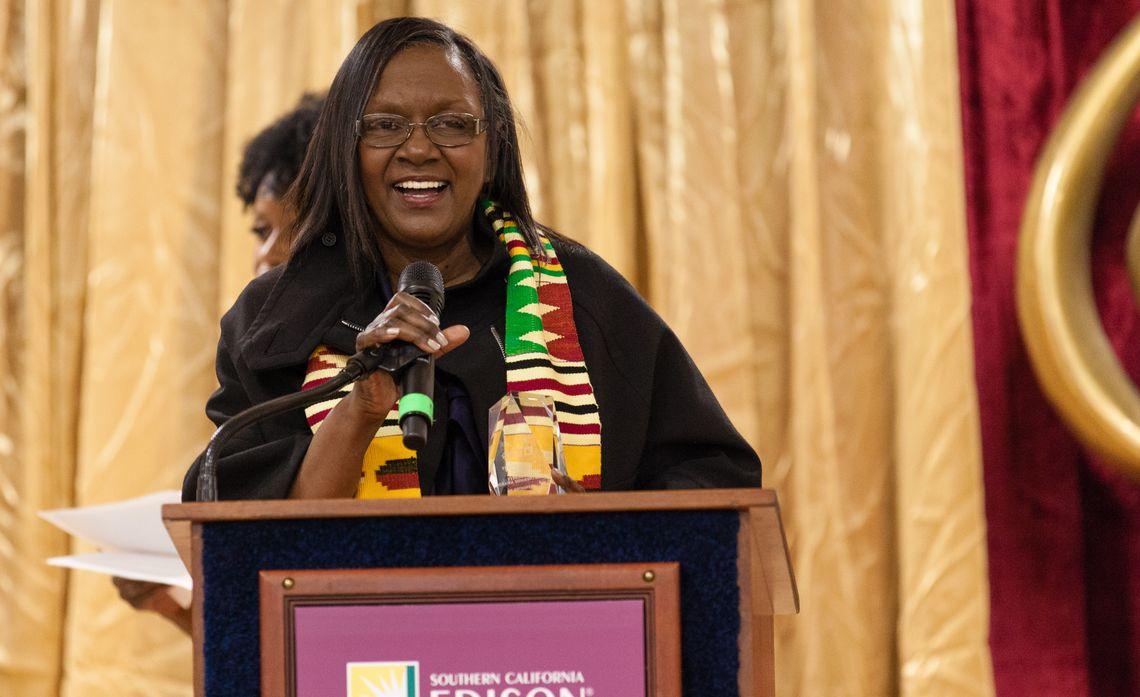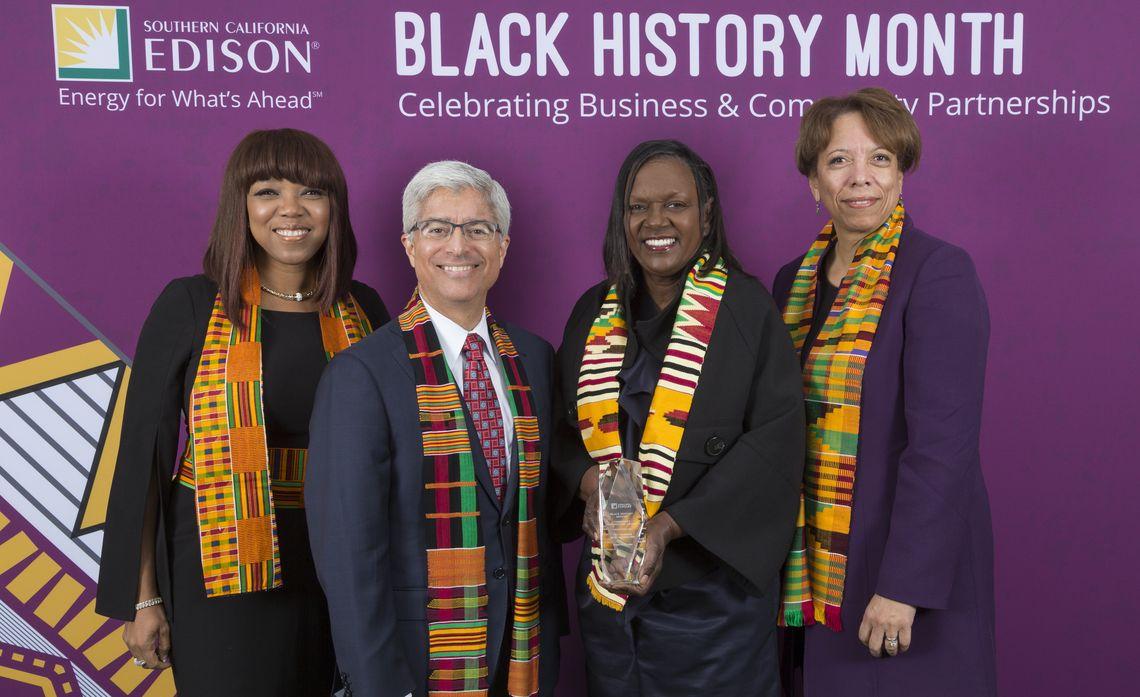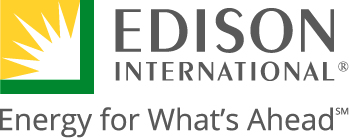STEM Program Helps African-American Males Excel, Go to College
The Long Beach Math Collaborative has been SCE’s community partner since 2011
Life was all about sports for young Torieaun Hilbert — that is, until he met Doris Robinson.
For Hilbert, a sophomore majoring in criminology and a football player at the University of La Verne, academics was not a priority when he started high school with a 2.2 GPA.
“I grew up in foster care,” he said. “I didn't have anyone who could explain to me how important education actually is.”
While attending David Starr Jordan High School in Long Beach during his freshmen year, Hilbert's grandmother pushed him to participate in the Long Beach Math Collaborative, a partnership between California State University, Long Beach and the Long Beach Unified School District. The program provides quality STEM (science, technology, engineering or math) education, college preparatory coursework and a pathway to college for African-American males from North Long Beach.
That’s where Hilbert met Robinson, executive director of the Long Beach Math Collaborative, who helped him raise his GPA to 3.8 through her mentorship. He went on to graduate with the most scholarships in his senior class.
“My journey in high school started with this program," said Hilbert. "Education is the ticket, especially for African-American youth.”
"Our focus is on STEM, specifically math," said Robinson. "If you master math, you can master any of the sciences."
According to the Schott Foundation for Public Education, 59 percent of black males graduate from high school compared to 80 percent of white males.
Edison International has supported the Long Beach Math Collaborative with $325,000 in grants since its founding in 2011. The nonprofit received the community partnership award at SCE’s recent Black History Month celebration in Compton.
"There are needs and gaps in many of the communities we serve,” said Lisa Woon, principal manager of Corporate Philanthropy for SCE. “We invest in programs like the Long Beach Math Collaborative because our community partners are best equipped to make a positive, direct impact in the community, which takes time, dedication and resources.
"We recognize that building a better tomorrow and powering the new energy future depends on supporting programs that prepare students, especially from underserved communities, to excel in STEM fields,” she said.
For Hilbert, the program was about more than just academics — it was about developing friendships. The after-school tutoring kept him in a structured program surrounded by like-minded students striving for a better future.
Robinson has the highest standards and expectations of her students.
“They have to believe they can reach the highest level of achievement,” she said.





